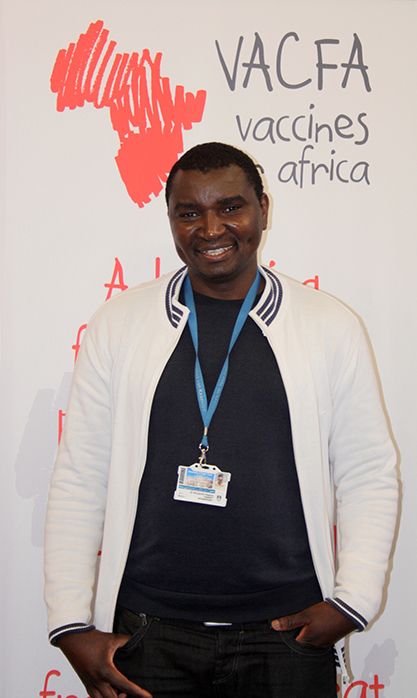Wellcome Trust grant gives priority to evidence-based immunisation policies
National Immunisation Programs (NIPs) are mandated by the government to deliver life-saving vaccines to all communities in a country. Currently, most NIPs in Africa deliver vaccines to prevent more than 10 life-threatening diseases. Although NIPs now boast of many successes in the control, elimination and eradication of vaccine preventable diseases (VPDs), the continent lags behind the rest of the world with the introduction of new vaccines as well as attaining the required vaccination coverage rates of >90%.

Dr Benjamin Kagina, Principle Investigator at VACFA
Limited resources may partly explain some of the challenges facing African NIPs. For example, the gaping hole in health financing on the continent tallies up to $66 billion each year (statistics in a United Nations Economic Commission for Africa (UNECA) report). According to the World Health Organisation (WHO), countries in Africa have access to just 1% of the world’s financial resources for health. Yet, African countries carry 24% of the global burden of disease. Many strategies are being used to address the challenges facing NIPs in Africa.
One strategy is an improved use of Evidence-Informed Decision Making (EIDM) to guide optimal practices and policies by the NIPs. A Wellcome Trust Grant with intended regional impact to strengthen EIDM for NIPs was recently awarded to the Vaccines for Africa Initiative (VACFA). The grant will play its part in advancing evidence-based immunisation practices and policies.
VACFA’s mission is: “To increase awareness of the benefits of vaccines and to promote the uptake of established and newly available vaccines in Africa.” It is based at the University of Cape Town (UCT’s) Institute of Infectious Disease and Molecular Medicine (IDM), at the Faculty of Health Sciences (FHS). VACFA was founded by Professor Gregory Hussey, a Full Member at the IDM.
The award, valued at approximately R3M, aims to support an eight-month scoping exercise to inform the establishment of an academic-based Regional Scientific Hub (RSH). The RSH will provide sustainable scientific support for EIDM on immunisation and vaccine-related issues to National Immunisation Technical Advisory Groups (NITAGs). The NITAGs provide an independent advisory role to National Departments of Health on immunisation and vaccine-related issues. For the advisory role to be optimal, NITAGs must be able to understand and effectively apply Evidence-Based Practices (EBP) in vaccinology.
“The advisory role of NITAGs has a critical scientific component which involves evidence-based vaccinology. NITAGs need scientific support on evidence-based vaccinology. Currently, the scientific support available to NITAGs is sub-optimal. There are many efforts here and there that offer support but they are not streamlined, and their sustainability is lacking,” says Dr Benjamin Kagina, a Research Officer and the project’s Principle Investigator. He continues, “With the Hub we’re looking to create a platform that is enabling for all potential users (mainly NITAGs) and/or policy formulators and assistants to come learn and share their experiences. They can then use the skills they’ve acquired to advance policy formulation and decision-making that is evidence-based.”
It may sound fairly simple but Kagina highlights that there are numerous factors to consider with a project of this nature. “It’s important to understand what the various existing efforts are, as well as their deficiencies, so that we complement what is happening as opposed to duplicating it... Leaving no stone unturned in the process of understanding how best to do that and provide sustainability is important.”
Kagina shares a hypothetical scenario where the hub could support a NITAG in Africa: “Let’s assume Country X needs scientific support to ask, collect, synthesize, and summarise the necessary evidence to guide the introduction of a new vaccine or even revise an immunisation schedule Then the hub would work alongside Country X on the scientific aspect of the evidence needed to recommend the introduction of a new vaccine or revision of the immunisation schedule.”
The vaccinology field is constantly changing and NITAGs will need to use the most up-to-date available evidence to advise the NIPs. Kagina adds that once the hub is set up: “It will play an integral role in guiding countries in the region to develop and own capacity in evidence-based immunisation recommendations for their healthcare programmes.”
Speaking to this, Kagina says the award is very fitting with VACFA’s work since the initiative has been very active in the field of immunisation and is well-versed in the space of immunisation policy development. “But the hub will go beyond this to provide scientific support to other healthcare initiatives and programmes,” he says.
For Kagina, immunisation is a gateway to health. “Strong policies that allow access to immunisation services for all will result in healthier communities and economies.”
